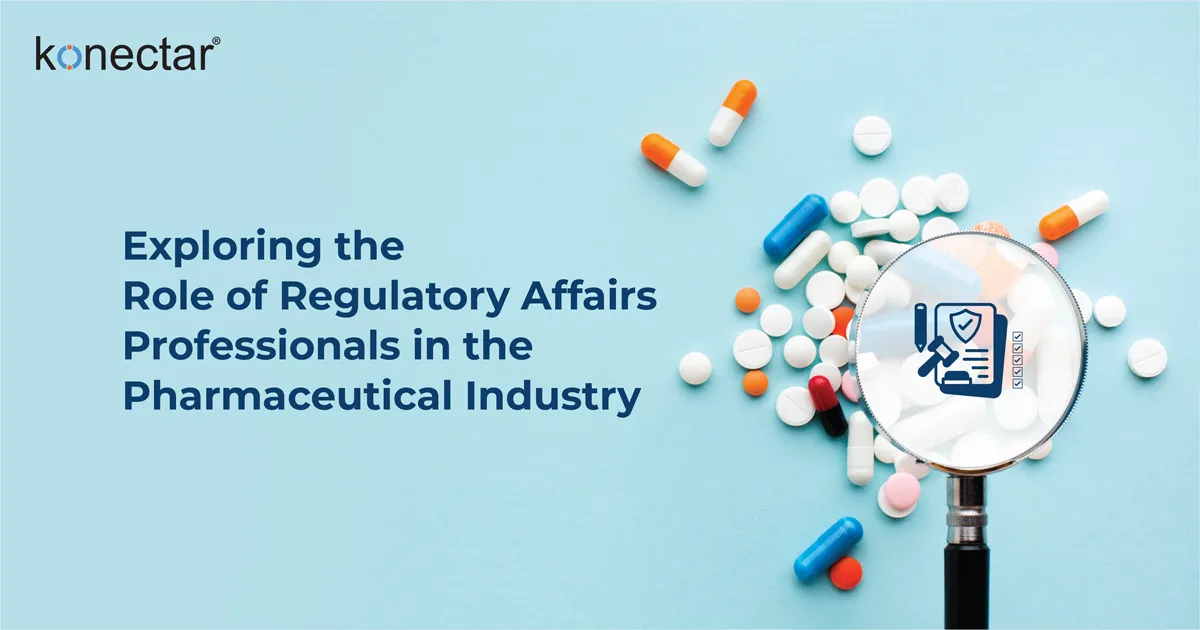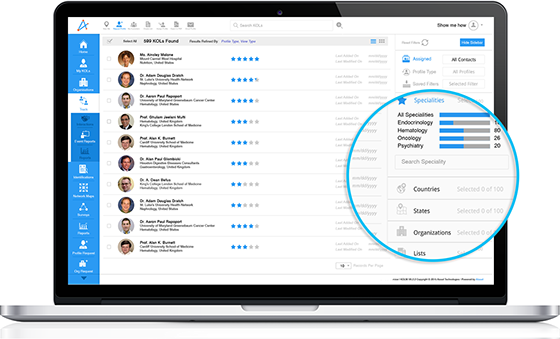04-01-2024
Role of Regulatory Affairs in the Pharmaceutical Industry

Regulatory Affairs (RAs) in the Pharmaceutical Industry is a comprehensive department that brings together all the information on current regulatory procedures in the pharmaceutical sector. They have in-depth knowledge of various regulatory concepts, including new and generic drug development, regulatory filings in different countries, phases of Clinical Trials, and the submission of documents like IND (Investigational New Drug), NDA (New Drug Application), and ANDA (Abbreviated New Drug Application).
In this article:
- 1.The scope and key responsibilities of pharmaceutical regulatory affairs professionals
- 2.Overview of major regulatory bodies and agencies governing the pharmaceutical industry globally
- 3.Charting the Course for Drug Approval Success
- 4.Professional Development in the field of Regulatory Affairs
- 5.FAQs
The Regulatory department holds a significant position within the organizational structure of pharmaceutical companies. It is a vital link internally, connecting drug development, manufacturing, marketing, and clinical research. At every stage of new drug development and in the post-marketing activities of approved medicinal products, RA plays an active and integral role. The ongoing global push for regulation standardization has made this field more consistent and relevant.
Key Responsibilities of Pharmaceutical Regulatory Affairs Professionals
Developing and launching a new pharmaceutical product is a lengthy process that can take up to 15 years, and it often involves challenges arising from scientific Development and a dynamic regulatory environment. RA plays a crucial role in assisting companies in avoiding problems related to poorly maintained records, inappropriate scientific approaches, or inadequate data presentation. In product areas subject to regulatory requirements, limitations on product claims in labeling or advertising are also imposed.
The department carries out a range of responsibilities, including staying abreast of international legislation, guidelines, and customer practices. Professionals in this field ensure a comprehensive understanding of the company's product range and work to ensure compliance with current regulations. This involves tracking ever-changing legislation in regions where the company intends to distribute its products, offering advice on legal and scientific constraints, and evaluating the scientific Data generated by research and development colleagues.
Among the specific responsibilities of the RA department are formulating regulatory strategies for various submissions, coordinating the preparation and review of relevant documents such as dossiers, and submitting them to regulatory authorities within specified time frames.
Additionally, they prepare and review Standard Operating Procedures (SOPs) related to RA, monitor registration submission progress, and maintain records of approved applications and registration fees. They are responsible for compiling, formatting, and submitting regulatory documents to health authorities and ensuring all activities comply with regulatory requirements, including Good Manufacturing Practice (GMP) and Good Clinical Practice (GCP).
They also communicate with regulatory agencies and respond promptly to queries, ensuring that registrations and approvals are granted without unnecessary delays. They also contribute to training team members on current regulatory requirements, advising their companies on regulatory aspects impacting proposed activities, and managing the review of audit reports, compliance, and regulatory and customer inspections.
Regulatory Affairs professionals assess and communicate the risks and benefits of healthcare products to regulatory agencies globally. It includes creating new tools and procedures to evaluate regulated products' safety, quality, and effectiveness, especially in the healthcare sector.
Overview of major regulatory bodies and agencies governing the pharmaceutical industry globally
In the pharmaceutical domain, various International Organizations contribute to Regulatory Standards. They are detailed below:
Regulatory compliance adds another layer of complexity, with healthcare organizations needing to navigate various regulations related to product safety, privacy, and ethical sourcing practices.
a. The World Health Organization (WHO) provides health guidelines globally.
b. The Pan American Health Organization (PAHO) focuses on health issues in the Americas.
c. The World Trade Organization (WTO) facilitates trade agreements, including pharmaceuticals.
d. The International Conference on Harmonization aims to standardize global regulatory requirements.
e. The World Intellectual Property Organization focuses on intellectual property rights, including pharmaceutical innovations.
Below are some of the regulatory bodies of countries worldwide:
a. United States (US): In the US, the Food and Drug Administration (FDA) regulates pharmaceutical activities to ensure public health.
b. United Kingdom (UK): In the UK, the Medicines and Healthcare Products Regulatory Agency oversees safety and efficacy, including Medical Devices.
c. Australia: The Therapeutic Goods Administration manages the development and monitoring of therapeutic goods, including pharmaceuticals.
d. India: In India, the Central Drug Standard Control Organization regulates drug development and quality standards.
e. Canada: Health Canada oversees the safety and quality of pharmaceuticals available in Canada.
f. Europe: The European Medicines Agency (EMA) coordinates pharmaceutical regulations across European Union states.
g. Japan: The Ministry of Health, Labour & Welfare (MHLW) ensures drug safety and efficacy in Japan.
h. Italy: Italy's pharmaceutical regulations are governed by the Italian Medicines Agency (AIFA).
i. Thailand: The Ministry of Public Health oversees pharmaceutical regulations in Thailand.
Apart from the above, in the US, regulatory bodies, both at the federal and state levels, establish and enforce standards to ensure pharmaceutical products' safety, efficacy, and quality. Organizations such as the FDA play a crucial role in regulating pharmaceuticals, while state-level departments, such as state health departments including the Michigan Department of Licensing and Regulatory Affairs, the California Department of Consumer Affairs, and the New York State Department of State Division of Licensing Services oversee and enforce regulations within specific industries.
Charting the course of Drug Development Process
RA plays a pivotal role throughout the drug development process, ensuring compliance with regulatory requirements and facilitating successful interactions with health authorities. RA's involvement begins even before submitting an Investigational New Drug (IND) application.In the early stages, these professionals collaborate with cross-functional teams to determine the necessity of pre-IND meetings with regulatory agencies.
The goal is to gain insights into the regulatory agency's expectations, potentially saving time and resources in designing the initial clinical study. As the drug progresses through Clinical Phases, the department ensures the IND remains current by updating it with new information.
RA professionals guide the team in preparing well-designed protocols and analysis plans, facilitating agreement with regulatory agencies on study design and analysis methods. Their role becomes even more critical during the preparation of marketing applications. It involves coordinating with diverse departments to compile comprehensive documents, aligning with the regulatory requirements of different regions.
RA serves as the main point of contact during the application review process, interacting with regulatory authorities and ensuring timely responses to inquiries. Post-approval, RA continues to be involved in the product life cycle. This includes submitting post-marketing safety reports, periodic reports, and supporting activities related to new indications or additional information from long-term toxicology studies.
Professional Development in the field of Regulatory Affairs
To build a career in the RA field, one must have two essential skill sets: soft skills like effective communication and technical skills such as in-depth knowledge of drug development and related regulations.
Entry-level Regulatory Affairs Professionals usually hold bachelor's degrees in biochemistry, biological sciences, chemistry, pharmacy, pharmacology, toxicology, medicine, or engineering. Additional coursework in law, marketing, business, and statistics is beneficial. Those who progress in the field often pursue a master's degree in business administration, clinical research studies, engineering, life science, or even a terminal degree such as a PhD, MD, or PharmD. In RA, professionals hold various titles like regulatory manager, specialist, and director, along with roles such as compliance specialist, food safety inspector, clinical research associate, and director of quality assurance.
These professionals also need to stay updated through a multifaceted approach, engaging in continuous learning through workshops, webinars, and seminars provided by industry associations and educational institutions.
Active involvement in professional memberships, such as the Regulatory Affairs Professionals Society (RAPS) and the Drug Information Association (DIA), offers access to industry-specific resources and networking opportunities. Attending Conferences, reading industry publications, and regularly checking online platforms and regulatory websites provide real-time information on updates and developments is important for these professionals to remain well-informed and updated in the evolving regulatory landscape.
FAQs
-
What is Regulatory Affairs?
Regulatory affairs in the pharmaceutical sector are critical disciplines that involve navigating the complex web of regulations, guidelines, and standards set by various health authorities. The primary goal is to ensure that pharmaceutical products meet the quality, safety, and efficacy standards before they reach the market.
-
What is the Role of Regulatory Affairs?
Regulatory affairs professionals facilitate communication between pharmaceutical companies and regulatory agencies, ensuring compliance throughout a product's lifecycle.
-
What qualifications are typically required for roles in Pharmaceutical Regulatory Affairs?
A bachelor's or advanced degree in pharmacy, chemistry, or a related field is typically required and certification in the regulatory domains are often beneficial.





